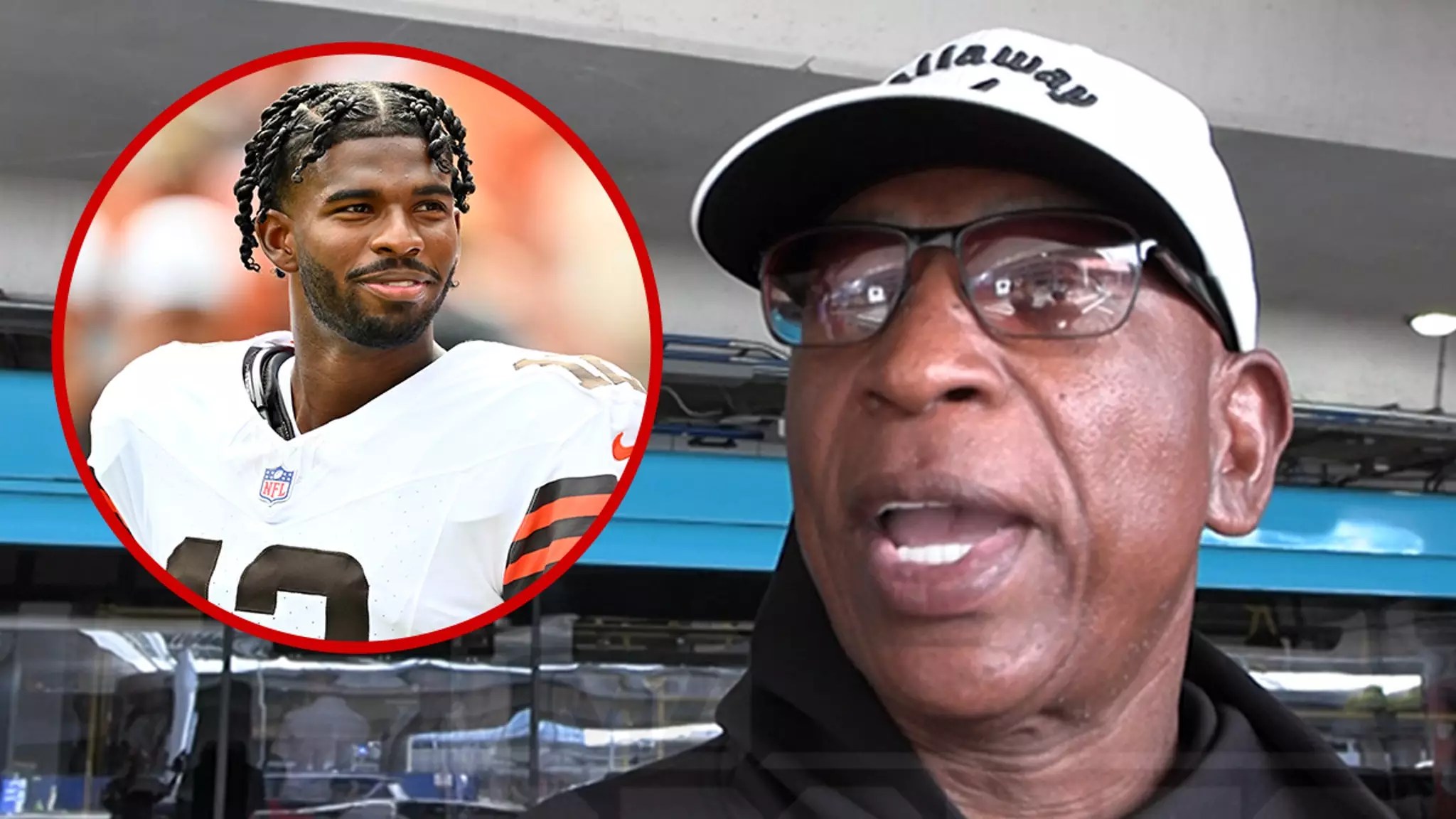In an era where digital soundbites often tame candid voices, Eric Dickerson’s recent remarks shine as a refreshing example of fearless honesty. His blunt critique of the Cleveland Browns’ handling of Shedeur Sanders underscores a larger truth about the importance of genuine opinions in sports commentary. While many figures tend to tone down their perspectives to avoid controversy, Dickerson’s willingness to label the Browns as “horrible” and question their intentions reveals a commitment to authenticity that fans and critics alike can admire. Such openness fuels healthy debate, encourages transparency, and keeps the conversation rooted in reality rather than manufactured narratives.
However, this same forthrightness can sometimes be a double-edged sword. By openly criticizing a franchise, Dickerson risks alienating fans or stakeholders who support the team. Yet, it also challenges conventional reverence for organizations that often operate behind a veneer of professionalism, hiding their flaws. His perspective urges us to scrutinize NFL franchises more critically and question whether they genuinely prioritize player development or merely serve their own interests. This kind of critique, though uncomfortable, is vital for fostering accountability within the sport.
The Impact of Personal Bias and Industry Power Dynamics
Dickerson’s disdain for the Browns appears as much rooted in personal conviction as it is in a perception of systemic mismanagement. His remarks about Shedeur Sanders highlight a broader concern: the potentially biased or opaque decision-making processes that influence player careers. His assertion that NFL teams were instructed not to draft Shedeur, citing a “source” within the league, exposes an underbelly of the sport where power dynamics and behind-the-scenes agendas might distort fair competition.
His comments also emphasize the role of personal loyalty versus professional judgment in player evaluations. Dickerson’s expressed admiration for Shedeur and Deion Sanders contrasts sharply with his critical stance towards the Browns’ handling of Shedeur, suggesting that personal bias can be a compelling force in shaping opinions. While advocating for players’ opportunities is commendable, it also raises questions about whether such biases can distort objective assessments of talent and readiness.
Moreover, Dickerson’s critique points to a larger frustration with perceived injustice—that deserving players are overlooked or misused due to organizational flaws, favoritism, or league interference. His provocative claims, though arguably unverified, stimulate vital conversations about fairness, transparency, and the influence of industry power structures on individual careers.
Challenging the Status Quo and the Voice of Outliers
What makes Dickerson’s commentary compelling isn’t just the content, but the willingness to challenge established norms. In a landscape dominated by carefully curated narratives, his outspoken criticism of NFL decisions and organizational ethics positions him as a voice of resistance—an outlier willing to go against the grain. Such voices are crucial, as they push entities to justify their actions and engage in introspection.
Yet, there’s also a cautionary element: unwarranted or overly harsh criticisms risk undermining constructive dialogue. Industry insiders should balance transparency with responsibility, ensuring that their voices provoke meaningful change rather than sow discord for its own sake. Ultimately, Dickerson’s unabashed honesty exemplifies the power and peril of unfiltered opinions in sports discourse, compelling us all to scrutinize the system that shapes our favorite game and its players.







Leave a Reply